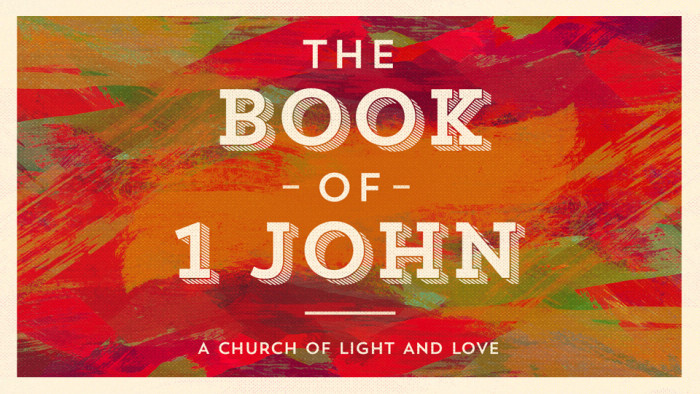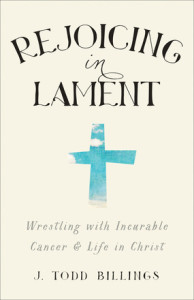
Near limitless forks can be found, and pursued, on the road marked, “Faith & Scholarship.”
One could channel George Marsden in confronting our day’s authoritative assumption “that our educational system would be better off if it were free from the heritages of ancient religious learning.”1 Another could interact with David Crump’s assertion in his recent work, Encountering Jesus, Encountering Scripture: Reading the Bible Critically in Faith, that “Christian faith should not be a mental sedative that puts reason to sleep; instead, it should cause reason to be resurrected.”2 Others might choose to walk down the path of discussing how the Christian faith relates to areas of secular scholarship such as bioethics, law, and English literature. This brief essay, however, chooses to walk down an old, yet oft-forgotten path called, “The Pastor-Scholar.” This path is where faith and scholarship have historically been intertwined. Although formidable in history, the pastor-scholar road is now fraught with bumpy questions like, “Should pastors devote energy to the pursuits of scholarly contribution? Is not the work of scholarship best left to reside in university walls and professorial ivory towers?”
My simple contention in this small slice of the intersection between faith and scholarship is that Christ’s church needs more pastors engaged in the work scholarship. If we would see a growing number of faithful scholars doing their work in the context of a local church I believe we would see the perpetuation of three things: an educated ministry, a fed laity, and a flourishing society.
Delineating the Audience
It must be acknowledged from the outset a need to limit the already limited path I have chosen. Two limitations are necessary—a definition and a caveat. First, I am working with the definition of Christian scholarship as, “The pursuit of glorifying God through advanced academic competence.” D.A. Carson makes a similar point in his discussion on the nature of a pastor-scholar by saying, “[We are] talking . . . about pastoral work in the framework of rather more advanced technical competence than is customarily the case.”3
We must also say not every pastor is called to be a scholar any more than every pastor is called to have six children. May God rain down special blessings on those he calls to scholarship and a large quiver! Any number of constraints against scholarship may push against the pursuit of “advanced academic competence.” Acknowledging these constraints, Doug Sweeney remarks, “Some don’t have the time. Many are serving churches that won’t allow this kind of stewardship. Some don’t have the intellectual gifts or writing skills . . . So let’s be honest about this: the kind of [scholarly] leadership that the world so desperately needs is not for everyone engaged in pastoral ministry.”4
Yet, when there is a happy, Spirit-wrought combination of the various abilities required—intellectual ability, financial capability, and margin of time—for scholarship, pastors should consider the following benefits that advanced academic pursuits can bring to Christ’s church and the world at large.
“The Best Theologians Were Parish Pastors”
In his book Jonathan Edwards and The Ministry of the Word Sweeney writes, “In the early twenty-first century, when many pastors have abdicated their responsibilities as theologians, and many theologians do their work in a way that is lost on the people of God, we need to recover Edwards’ model of Christian ministry. Most of the best theologians in the history of the church were parish pastors.”5 Gerald Hiestand’s survey of the mighty scholars of old leads him to similarly conclude, “The heritage of pastors such as Irenaeus, Athanasius, Basil, Augustine, Anselm, Luther, Calvin, Edwards, Wesley, etc., all demonstrate the viability—indeed desirability—of uniting ecclesial ministry and robust theological scholarship.”6
A humble and earnest pursuit of advanced academic work will ordinarily be a boon to an increasingly educated ministry. Sure, outliers exist. Some pastor-scholars’ education may in fact be a disservice because their increasing intellect only serves to make them increasingly inaccessible to the ordinary church member. On the whole, however, educated ministers bring edifying ministries. The great apostle said, “Do your best to present yourself to God as one approved, a worker who has no need to be ashamed, rightly handling the word of truth” (2 Tim. 2:15). Scholarly pursuits in the realms of theology, hermeneutics, or the original languages of Scripture provide pastors with a deeper facility in handling God’s word. A deeper facility, with God’s word, gained through advanced study, provides potential for greater spiritual prosperity in God’s church. Hiestand agrees, “More [scholars] in our pulpits will deepen the theological integrity of our churches, while at the same time add an ecclesial voice to evangelical theology.”7
But we should not limit a pastor’s academic work to the essential academic arenas of Bible and theology. A pastor’s pursuit of competence in the field of ethics would surely God’s people who are surrounded by no shortage of ethical quagmires. Pastors trained as historians would have a unique ability to see through the vanity of fascination with contemporaneity. If a pastor immersed himself in classical literature we would not be silly to expect his sermons would contain powerful, moving language.
Ordinary pastors pursuing extraordinary study, with the Spirit’s help, can be unique blessings to the family of God. world at large.
Growing So They Might Grow
Feeding the word of God to the people of God is the ordinary work of a pastor’s ministry. Faithful pastors long to see their congregation’s spiritual girth continually expanding. Several positive effects of a pastor’s scholarship were mentioned above, but we can add something of a guiding principle here. Michael Bird, with a nod to Hiestand, hits on the principle in this elongated sentence, “The theological integrity of the gospel in the Christian community will never rise above the level of her pastors and ecclesial theologians are best situated to produce ecclesially sensible, field-tested, theological work that deepens the faith and depth of the church.”8 What’s this maxim calling for every pastor’s attention? It’s the truth that a congregation rarely exceeds her pastor’s growth in the grace and knowledge of Christ. A pastor’s growth, ordinarily, is inextricably linked to the church’s growth. And so we see the tie to Christian scholarship. Because faithful scholarship is by nature an exercise in growth—growing precision in awareness and aptitude—we can expect faithful pastor-scholars will be turbochargers for Christ-centered transformation in their Christian communities. As he grows, they will grow.
Expanding Into the World
Ellen Charry has recently argued in her compelling work God and the Art of Happiness that much modern Christian theology lacks a hearty doctrine of human flourishing.9 She reminds us joyful growth in the grace and knowledge of Christ is never meant to merely terminate on the one in whom the transformation happens. The happiness of Christ is meant to radiate out to the stations of society in which we live. If it does not do so, we would be taking the spiritual lamps and putting them under a basket (cf. Matt. 5:15).
It seems, in popular opinion, most pastors fear scholarship will prohibit them from contributing towards human flourishing. “Will advanced academics inebriate me to the life of ordinary people?” Of course it could, but scholarship wedded to faith looks out, because faith looks out to Christ. When proper academic pursuits are married to biblical faith, scholarship becomes a catalyst for the flourishing of ideas, practices, and conformity into Christ’s image. Is scholarship all we need for human flourishing? Surely none would think so. Yet, woven into the fabric of God’s creation, his society, is the joy of knowing. Scholarship gives impetus to deeper and more meaningful knowing, and thus richer community.
It’s a Two-Way Street
This essay is something of a surface-level scratch into the conviction that Christ’s church needs more pastors devoted to scholarship. It is a belief currently driving my own advanced studies in the midst of pastoral ministry. I believe the family of faith needs more leaders modeling in their midst the relationship between faith and scholarship. Where these faithful pastor-scholars increase we are not foolish to hope an educated ministry, growing laity, and flourishing society will follow. There are encouraging trends in this reclamation of the role of pastor-scholar. New publications are due this year commending and instructing the vision.10 New fellowships like The Center for Pastor Theologians offer tangible, ecumenical hands and feet to the model.
There is one more thing that must be said on the matter at hand and it is this: the church’s need for pastors devoted to scholarship is a two-way street. Not only do we need ordained pastors prayerfully and happily pursuing advanced academic competence, we also need Christians scholars already engaged in advanced academia to root themselves in local church ministry. May the Spirit give many of these scholars an aspiration to the office of elder. A cursory survey of Christian scholars, across disciplines, reveals the Spirit is indeed working in such a way. Let us long for, pray for, and work for many more pastor-scholars to shepherd Christ’s sheep and model the marriage of faith to scholarship.
———————————————————————————————————-
[1] George Marsden, The Outrageous Idea of Christian Scholarship (New York: Oxford University Press, 1997), 3.
[2] David Crump, Encountering Jesus, Encountering Scripture: Reading the Bible Critically in Faith (Grand Rapids: Eerdmans, 2013), 132.
[3] D.A. Carson and John Piper, The Pastor as Scholar & The Scholar as Pastor: Reflections on Life and Ministry (Wheaton: Crossway, 2011), 72-73.
[4] Douglas A. Sweeney, “A Call and Agenda for Pastor-Theologians,” The Gospel Coalition Blog, April 26, 2012, accessed February 22, 2015, http://www.thegospelcoalition.org/article/a-call-and-agenda-for-pastor-theologians
[5] Douglas A. Sweeney, Jonathan Edwards and The Ministry of the Word: A Model of Faith and Thought, (Downer’s Grove: IVP, 2009), 199.
[6] Gerald Hiestand, “Taxonomy of the Pastor-Theologian: Why PhD Students Should Consider the Pastorate as the Context for Their Theological Scholarship,” The Expository Times 124 (November 2012): 261.
[7] Hiestand, “Taxonomy of the Pastor-Theologian,” 264.
[8] Michael F. Bird, “Why We Need More Doctorates in the Pastorate!” Patheos Blod: Euangelion, March 21, 2013, accessed February 23, 2015, http://www.patheos.com/blogs/euangelion/2013/03/why-we-need-more-doctorates-in-the-pastorate/
[9] Ellen Charry, God and the Art of Happiness (Grand Rapids: Eerdmans, 2010).
[10] Kevin J. Vanhoozer and Owen Strachan, The Pastor as Public Theologian: Reclaiming a Lost Vision, (Grand Rapids: Baker, 2015); Gerald Hiestand and Todd Willson, The Pastor Theologian: Resurrecting an Ancient Vision, (Grand Rapids: Zondervan, 2015).







